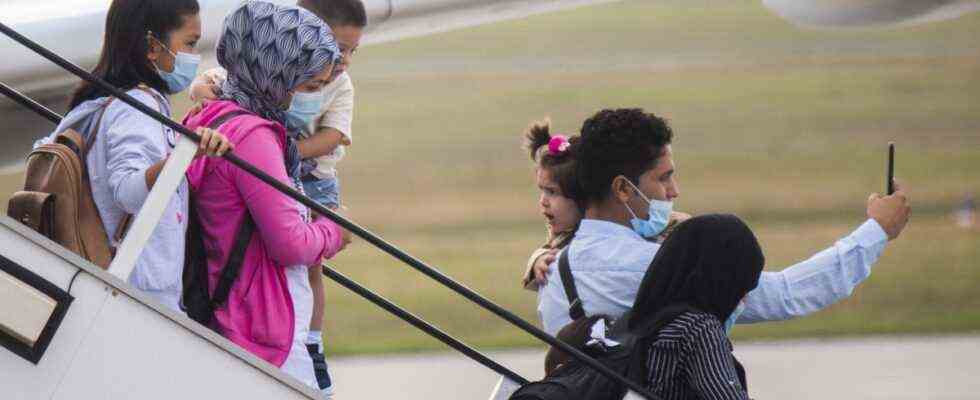The latter landed almost a year after the fire. Ten stragglers, previously too sick to travel, got off the plane last Friday in Berlin, Düsseldorf or Frankfurt. According to the Federal Ministry of the Interior, Germany took in exactly 2,812 people after the fire in the Greek refugee camp Moria – including unaccompanied minors, sick children with their families and many recognized beneficiaries. The ministry is proud: Germany has brought in more people than all other receptive states put together, writes a spokeswoman. What she doesn’t write: That was just the official part.
Thousands of other recognized refugees have long since traveled from Greece to Germany on their own. The Federal Office for Migration and Refugees (Bamf) provides the decisive figure: around 27,500 asylum applications from refugees who may have already been recognized in Greece were pending there at the end of August. And there are more and more.
Experts suspect that refugees arriving from Greece could become the most pressing problem in asylum policy. They come because they do not receive any support in Greece and often live on the streets. Unlike those officially rescued from Moria, they have no perspective in Germany either. “They are stuck in the anchor centers without their cases being dealt with at all,” says Günter Burkhardt from Pro Asyl. The Bamf confirms that these requests have been “given back priority”. That means: They have not been processed since December 2019.
Refugees recognized in an EU country are allowed to travel in the EU like tourists, but are not allowed to settle elsewhere in the first few years. Nevertheless, Germany is not allowed to send them back to Greece, several higher administrative courts have ruled. There is a serious risk that they will not be able to satisfy their most basic needs (“bed, bread, soap”) there, it says in the Reasons for the judgment of the OVG North Rhine-Westphalia. “People are parked in the administrative no man’s land,” criticized Pro-Asyl manager Burkhardt. He calls for EU states to recognize each other’s asylum decisions so that refugees can move to wherever they can find work. But since that is not in sight, the Bamf would have to decide on their cases.
Meanwhile, the federal government wants to help the refugees in Greece with accommodation and food. A tired attempt, find the Greens and Leftists. The hotspot system at the EU’s external borders has failed, and not just since Moria, says the spokeswoman for refugee policy for the Greens, Luise Amtsberg. “We urgently need a solidarity distribution of all arriving asylum seekers to EU member states that are ready to take in.” Germany itself could help far more refugees, says Ulla Jelpke from the Left, referring to the “many concrete admission offers from cities and municipalities”, which, however, are not allowed to help without the consent of the federal government. The left want to change that.

